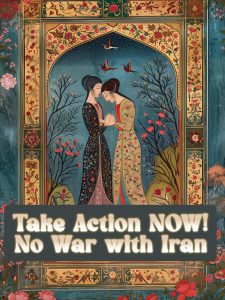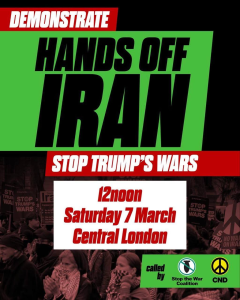In a significant legal victory, Palestinian student Dana Abu Qamar has won her appeal at the First-tier Tribunal (Immigration and Asylum Chamber) against the Home Office’s attempt to cancel her student visa in December 2023. This decision comes after court documents showed that then-immigration minister Robert Jenrick personally intervened in the matter, enquiring with the Home Office whether it would be “possible to revoke her student visa”. The case centred around support for Palestinian resistance.
Dana Abu Qamar
The Tribunal’s decision is a landmark ruling, rebuffing the British government’s relentless attempts to conflate solidarity with Palestine with ‘terrorism’ or ‘antisemitism’ and reaffirming the right to support Palestinian resistance under International Humanitarian Law.
The decision was upheld despite a change in government, with the new Labour Party-appointed home secretary, Yvette Cooper, refusing to reverse the initial punitive decision – illustrating how Labour has continued Tory policies that stifle advocacy and solidarity for Palestinian rights.
The decision to cancel Abu Qamar’s visa came in the midst of a major crackdown by the previous government against the growing mobilisation in solidarity with Palestine in the wake of Israel’s genocidal onslaught on Gaza that has now been ongoing for over a year.
Significantly, the Tribunal declared that Abu Qamar was ‘not an extremist’ and ruled that the Home Office had failed to demonstrate that Abu Qamar’s statements in support of Palestinian resistance made her presence in Britain ‘not conducive to the public good’ – the test at the heart of Britain’s sweeping powers to deport individuals and deprive them of British citizenship.
The Tribunal also recognised that Abu Qamar’s description of Israel as an “apartheid state,” aligned with the views of numerous human rights organisations and that references to Palestinians “actively resisting” and as “breaking free” are widely understood to relate to lawful acts of resistance.
Supporting Palestinian resistance does not equal extremism
Subsequently, ruling that support for Palestinian resistance does not constitute extremism and falls within protected free speech pursuant to Article 10 of the ECHR and thus attempts at revocating Dana’s visa under these grounds violates her fundamental rights.
Dana Abu Qamar’s win is a boost for the Palestine solidarity movement and a blow to the British government’s shameless attempts to criminalise protestors and bully them into silence.
The decision raises questions about the deeply politicised use of security and counter-terrorism powers against the Palestine movement and increasingly against those engaging in political activism and protest against the state.
The European Legal Support Centre (ELSC) calls for an end to the punitive use of counter-terrorism measures to suppress critical dissent and urges the UK government to uphold international human rights standards, protecting the rights of all communities to advocate for justice and lawful resistance against settler colonialism freely.
A battle against state repression
Dana Abu Qamar said:
After a year-long legal battle against state repression and disregard of human rights, specifically targeted against pro-Palestinians, justice has prevailed.
This case has reinforced Palestinians’ right to resist occupation in the domestic context; that the expression in support of that right cannot be conflated with support for terrorism; that there is no room for abuse of power by ministers and arbitrary decision-making to undermine the rule of law. I hope that this ruling inspires and strengthens supporters of the Palestinian movement to continue advocating against Israel’s flagrant violations of international law.
I am grateful to the ELSC, my legal team, comrades, friends and family for their support throughout the whole process.
Tasnima Uddin, from ELSC, stated:
Dana Abu Qamar’s landmark legal victory is a powerful reminder that government measures are often wielded to criminalise dissent, particularly within Palestinian, Muslim, and other minority communities.
This decision underscores the misuse of vague security terms—like ‘non-conducive to the public good’—to stifle expressions of solidarity with Palestine, particularly in an atmosphere increasingly charged by racist political agendas, such as those spearheaded by figures like Robert Jenrick.
Abu Qamar’s victory is a crucial step against the erosion of civil liberties and sends a clear message: solidarity with Palestine is not a crime. Supporting Palestinian resistance is internationally recognised and is not extremism.



